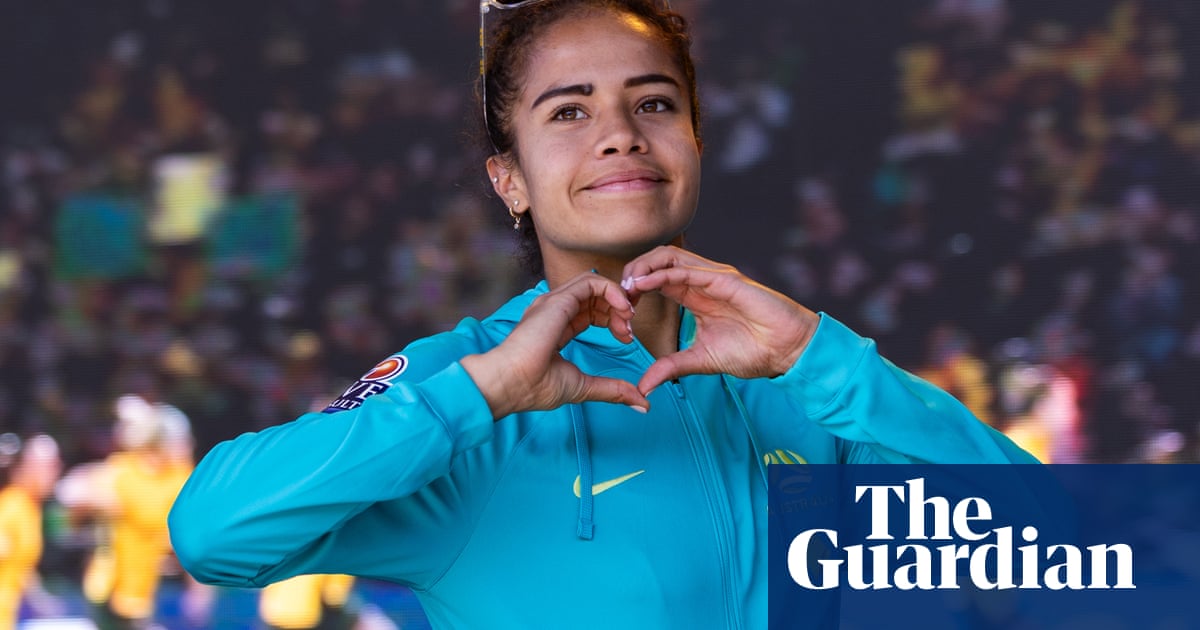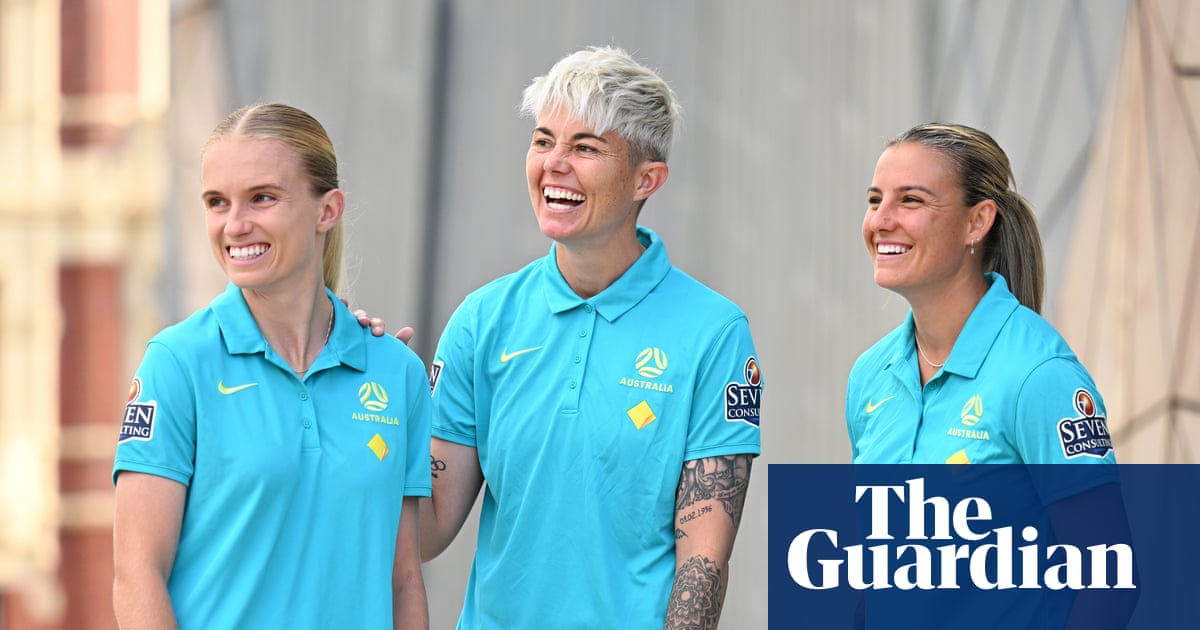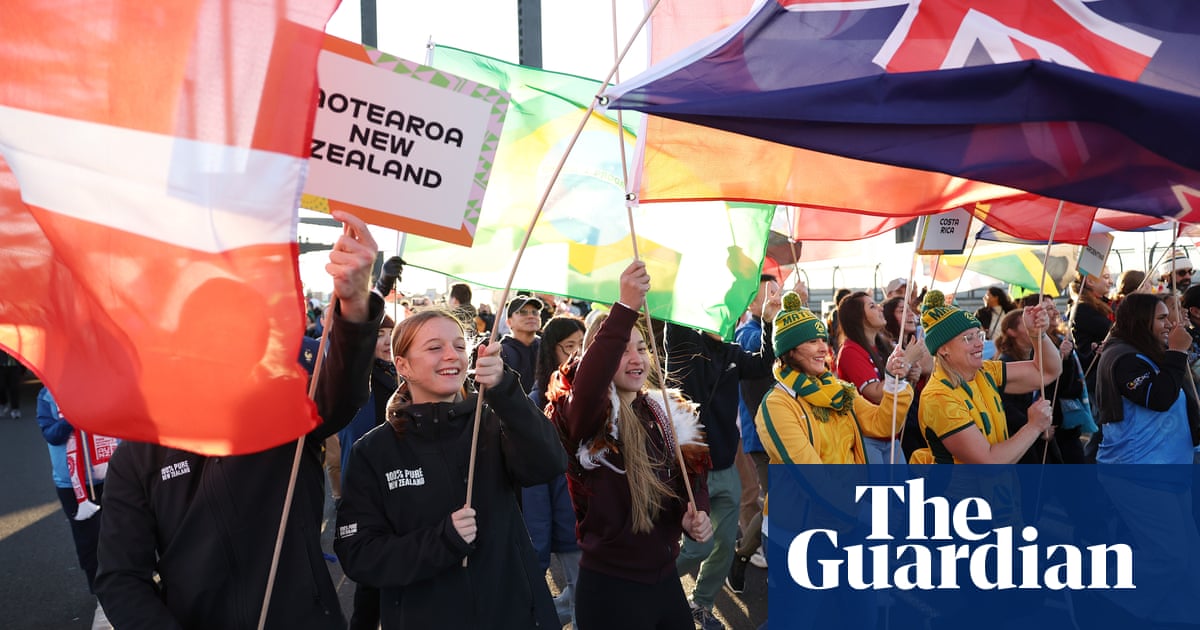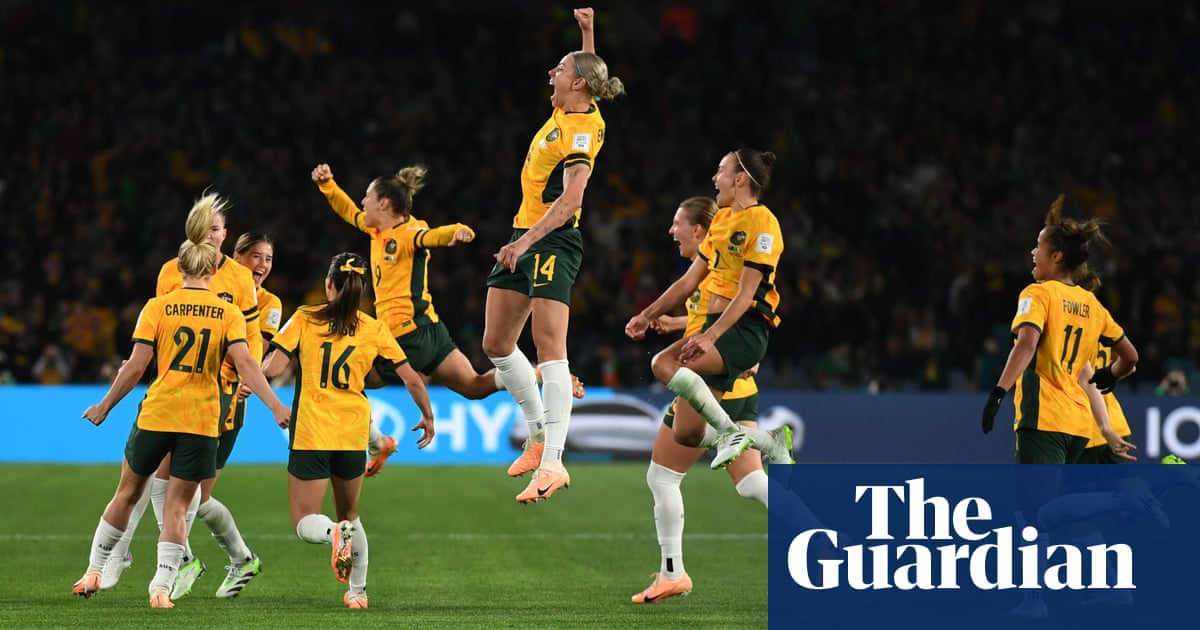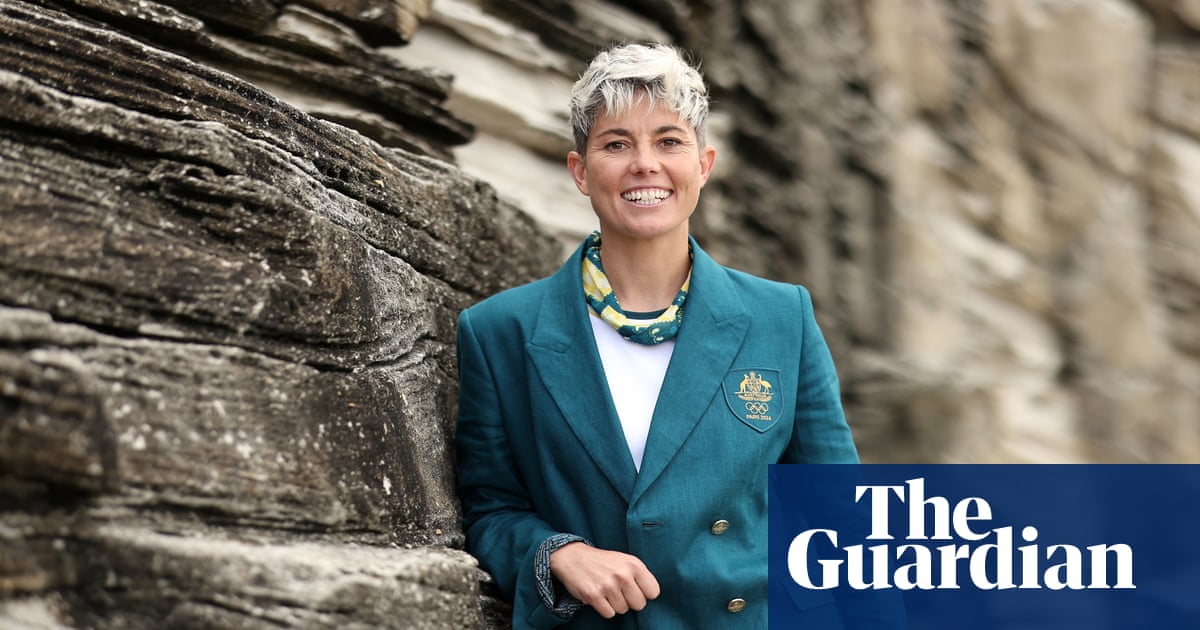
It wasn’t the fastest woman in Australia. Nor the gymnast with a move named after her, or the teenage breaking phenomenon. Not even the brilliant beach volleyballer.
Instead, the athlete most in demand at the Sydney launch of the 100-day countdown to the Paris Olympics was a footballer.
“It’s crazy,” Michelle Heyman says, “It’s wild to see how much has changed.”
In 2024, the Matildas stand atop Australia’s sporting pantheon, the benchmark for audiences, and the marketer’s dream. But a short time ago, the side’s place in the pecking order was far more modest.
Few know the transformation better than Heyman. It has been almost eight years since her one and only Olympic appearance in Rio, before her long period out of the team.
“I think my last game that I played in Sydney before we went to the World Cup [in 2015], there was 5,000 people in the stands,” she says. “Now, walking out in Melbourne with 55,000 people cheering us on, it’s wild to see how incredible it is.”
It’s not just the level of fame and adulation that has increased. When asked what exactly is different about the Matildas today, Heyman’s response is immediate. It’s business class flights, a hotel room to yourself, ice baths, protein-rich diets and something like 26 staff, all focused on the players.
“You can see the reason why sometimes it takes a bit of money to invest in women’s sport to see a great outcome, so I feel very honoured to be a part of that and to see the big change,” she says.
Much has been made of the surging popularity of women’s sport, and the Matildas’ role in that. But the Olympic movement has long embraced and rewarded Australia’s finest female athletes.
The previous iterations of the blazers and chinos on display at the launch of Australia’s Olympics uniform have been worn by just as many women as men. There was Betty Cuthbert, Dawn Fraser, Anna Meares and other heroes of track, pool and velodrome. In 2016, for the first time, more Australian women went to the Olympics than men, and in Tokyo that ratio increased again, to 53.7% women.
But many of Australia’s female Olympic athletes continue to exist on the breadline. In swimming, rowing and volleyball, many could not dedicate themselves to their sport without benefactor Gina Rinehart. None could go close to the Olympic team without support from the Australian Olympic Committee, the government and family.
Australia’s best gymnast, Georgia Godwin, revealed on Wednesday she is still working 15 hours a week to meet living expenses. Only after nationals next month – barely two months from Paris – will she transition into full-time training. Something similar can be said around the challenges for male Olympic athletes – though the media’s interest in Heyman highlighted how the dynamics are shifting.
Men’s Olympic football has had an under-23 age limit for more than 30 years, a reflection of the threat the Games poses to FIFA’s World Cup, and the established professional ecosystem that exists in the sport. The world’s top male footballers, largely, don’t need the Olympics.
The Matildas have long relished being part of the Olympic movement, and there’s no imminent sign of change. But women’s football’s growing economic independence means it may not always be this way.
On its own, Heyman’s contract with Canberra United won’t make her a millionaire, but being part of the Matildas this year gives her some financial security. Regular Matildas players typically earn in the low six-figures annually, and under a pay deal struck last year they benefit from a share of commercial revenue above Football Australia’s projection. They cash in when the brand does. And 13 straight sellouts have the accountants grinning.
To Heyman’s benefit, age restrictions in women’s football at the Games will arrive long after she has retired, if they ever do. For the moment, she has more immediate concerns, like winning over coach Tony Gustavsson and stamping her ticket to Paris.
“From Tony’s side of things, he enjoys what I’m doing, we’ve had some good conversations, and it’s been a lot of fun,” she says. “It’s been very open and honest, which I really enjoy, and none of this beating around the bush.”
Just 18 Matildas can be taken to Paris, a tighter group than the typical 23-player squad for major football tournaments. But if Heyman is given an Olympic blazer of her own, she won’t take it for granted.
“I think, in Rio, I panicked,” she says, recounting the noise and ferocity of the Brazilian crowds. “It’s quite scary.”
Australian eyes will be on her in the moment – but Heyman won’t be looking back.
“It comes with age, I just feel so comfortable and confident within my own skin that when I get out on the field, I don’t even notice anyone else.”





